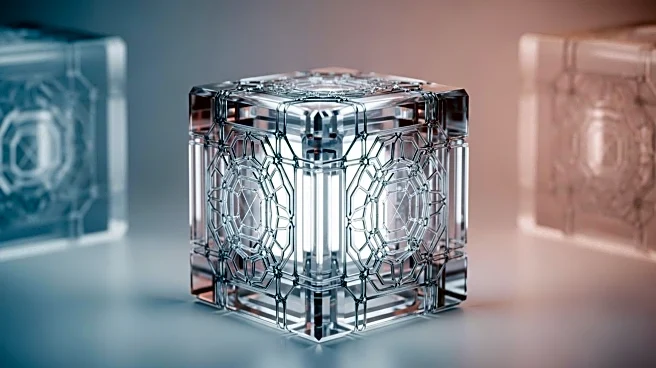What is the story about?
What's Happening?
A team of researchers in Denmark has developed a method to transform decomposed PET plastic into a material that efficiently captures carbon dioxide. This innovative approach, detailed in a study published in Science Advances, aims to address both the global plastic waste crisis and the urgent need to mitigate greenhouse gas emissions. The material, named BAETA, is created through a chemical process called aminolysis and can absorb significant amounts of CO2. The researchers hope this dual-purpose solution will incentivize the removal of plastic waste from oceans, providing economic benefits while tackling environmental challenges.
Why It's Important?
The development of BAETA represents a significant advancement in environmental technology, offering a potential solution to two major global issues: plastic pollution and climate change. By converting waste into a resource that can reduce greenhouse gases, this method could transform environmental management practices. The economic incentive to clean oceans of plastic could lead to widespread adoption of this technology, benefiting industries focused on sustainability and environmental protection. This innovation highlights the importance of integrated approaches in addressing complex ecological problems.
What's Next?
The researchers plan to further explore the scalability and cost-effectiveness of BAETA as a carbon capture system. They aim to collaborate with industries and governments to implement this technology on a larger scale, potentially leading to significant reductions in marine plastic pollution and atmospheric CO2 levels. The success of this initiative could pave the way for similar projects that utilize waste materials for environmental benefits.
















